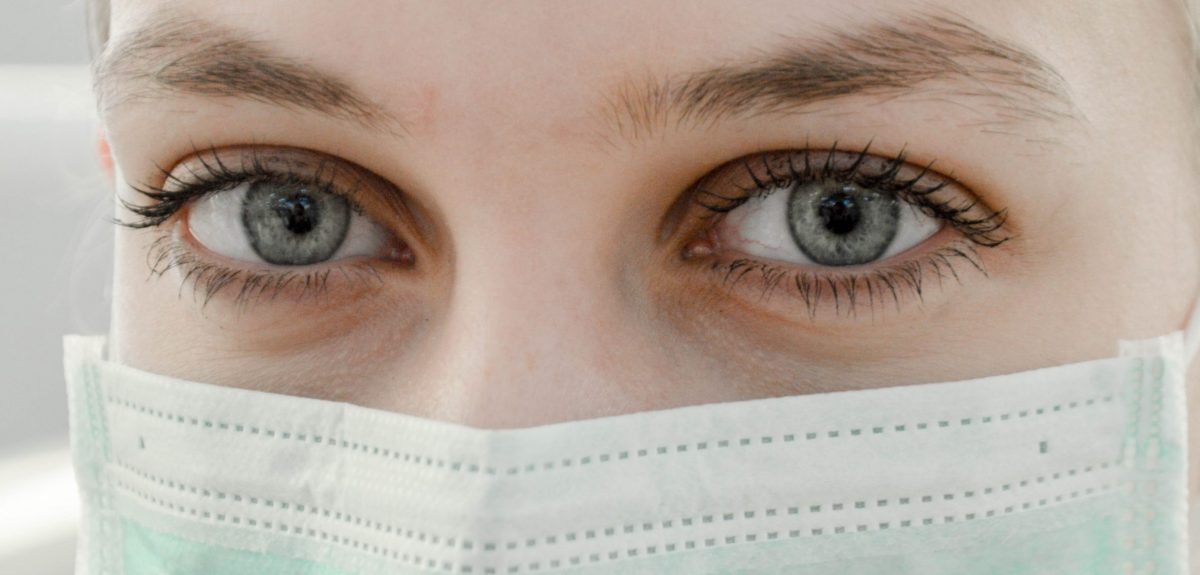With the Coronavirus pandemic gripping most of the globe it comes as no surprise there is considerable pressure on our medical staff.
Frontline medical workers such as doctors and nurses bear the brunt of a world health crisis like the one we are currently facing.
It will be no surprise that research has found a fifth of nurses in the UK (21%) describe their mental state as “poor”.
The results from the study carried out by Randstad suggests that while gender makes little difference to wellbeing (women: 21%; men: 20%), age does. The mental health of younger nurses is worse than average – with half (50%) of 26-30-year-old nurses describing their mental health as poor.
The research, based on a poll of 300 nurses across the UK, suggested different contracts made a difference. A quarter (25%) of nurses working in permanent positions said they would describe their mental wellbeing as “poor” compared to 13% doing shift work.
Three in every ten nurses (30%) report that their mental health is deteriorating. The situation is worse for women than men, with 31% of women reporting their mental health had deteriorated over the last year, compared to a quarter (25%) of men. Worst affected were full-time permanent nurses – more than a third (35%) said their mental health was deteriorating.
CAUSE: WORK PRESSURE
Almost two thirds (63%) of nurses reported that work pressure was a significant factor negatively affecting their mental wellbeing – and half of those polled (50%) say increasing work pressures were contributing to mental health conditions through a place of work. Four in every five (82%) said their employer does not do enough to support them.
Victoria Short, managing director of Randstad, said:
“Nurses are suffering from care-giver fatigue. The risk of getting depression from your job is raised if you work outside the typical 9-to-5, as many nurses do – people who work irregular hours or night shifts are 33% more likely to have depression. Not only do nurses work anti-social hours, but the work-related stress they operate under is also intense. We need to be supporting them, not piling more work and responsibility on their shoulders. We need a comprehensive strategy to reduce work-induced burnout and improve the mental health of our nurses. An energized, engaged, and resilient nursing workforce is essential to achieving the UK’s national health goals.”
RAMIFICATIONS: SICK DAYS + EXODUS FROM PROFESSION
This is having a detrimental effect on the health service. On average, nurses say they took off 2½ days sick leave last year due to mental health conditions alone. The situation in the capital was far worse. Nurses in London report they took 5¼ days sick leave last year on account of their mental health.
One in six (17%) of nurses said they were planning to leave the profession in the next 12 months due to work-related mental wellbeing (another 11% said they’d leave but for different reasons). Across the UK, the situation was worse in Scotland, where 40% said they’d leave. In England, the South West was the worst hit with 24% of nurses saying they were planning to leave in the next year due to their mental health.
The ramifications may be even more serious in the future. Randstad’s poll also revealed that only 18% of nurses would recommend working in this profession to someone else – while 82% said they would not. A sixth (16%) of those working in a permanent position said they’d advocate the profession – which was lower than the fifth (20%) of those working more flexibly.
Victoria Short said: “Rather than leaving the sector altogether, it would be better if we could persuade more permanent nurses to consider flexible working to relieve the pressure. To do that, we will need to change hearts and minds in the wider media which frequently portray agency nursing as the profession’s ugly sister.”
TIPS FOR DEALING WITH WORK-RELATED STRESS
Randstad has collaborated with nurse and Love Island star Rachel Fenton, to produce a video which shares Rachel’s top tips for dealing with stress at work and managing your mental health.
Her top tips for keeping your mental health in check include:
- Incorporating exercise into your daily routine
- Napping before night shifts
- Taking vitamin D supplements if you aren’t seeing enough daylight on the ward
- Take time off work – book a summer holiday or look to work more flexibly
- Meal prepping and drinking 3 liters of water a day to help you eat clean and stay off the coffee!
About the author: Founded in 1960, Randstad is an international recruitment and HR consultancy headquartered in Diemen, the Netherlands. It operates in 38 countries, serves 280,000 clients, and employs approximately 38,000 people. Last year, Randstad trained more than 350,000 people and helped more than two million candidates find jobs, generating €23.7bn worth of revenues. Randstad N.V. is listed on the NYSE Euronext (symbol: RAND.AS).

